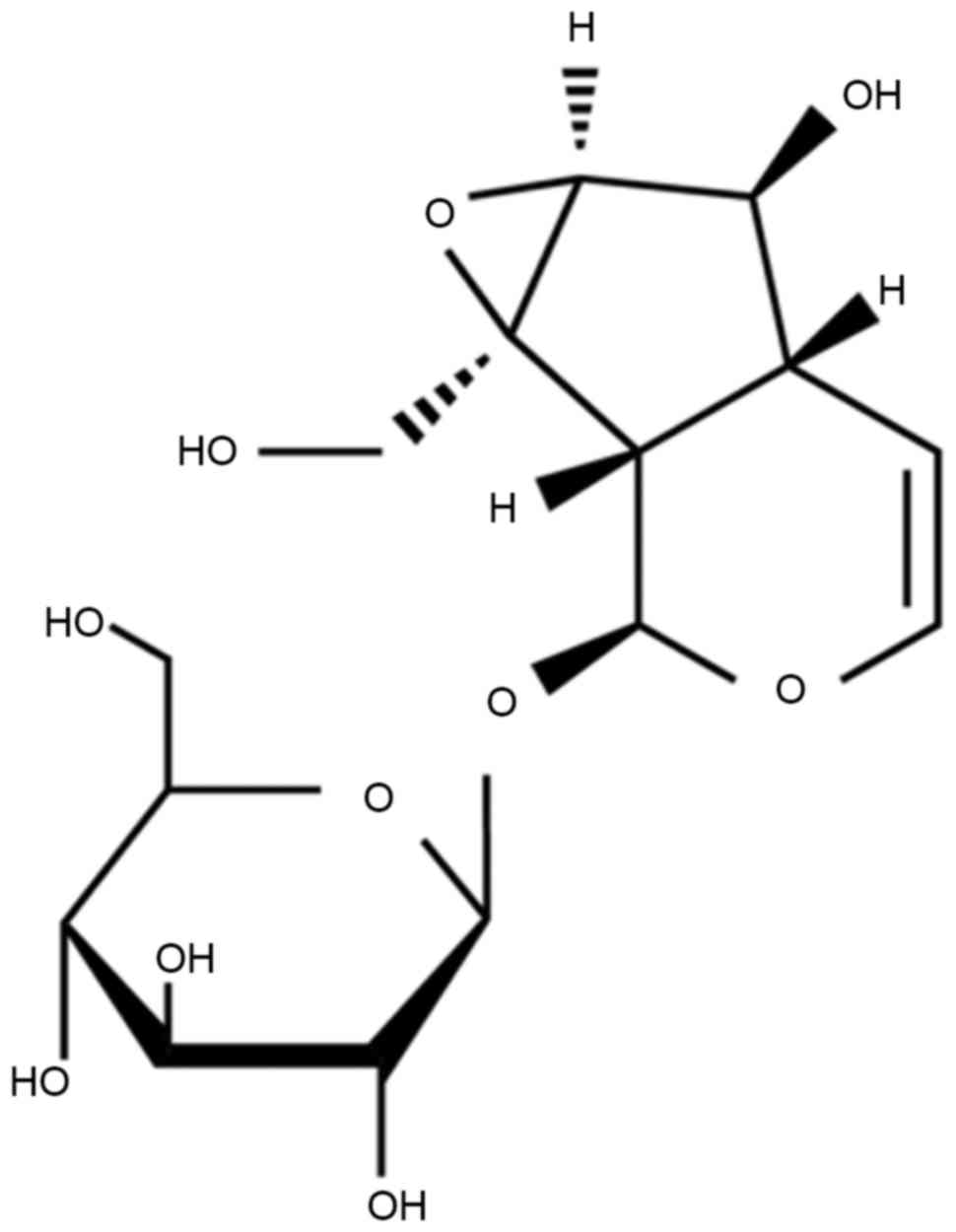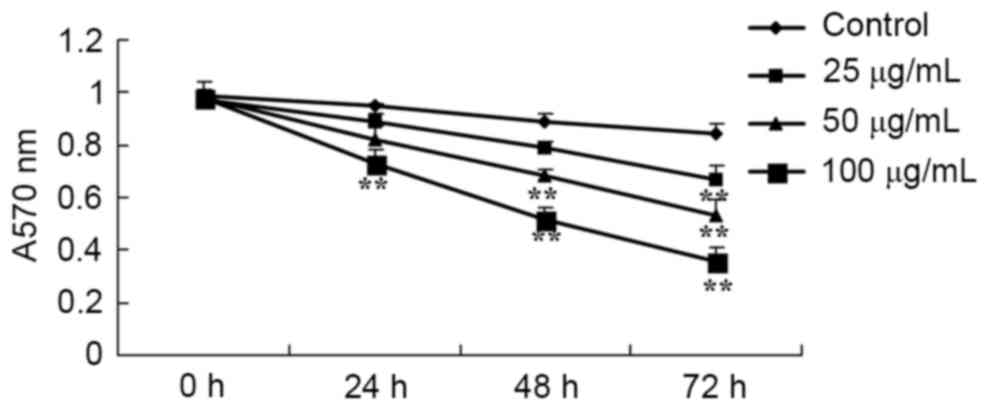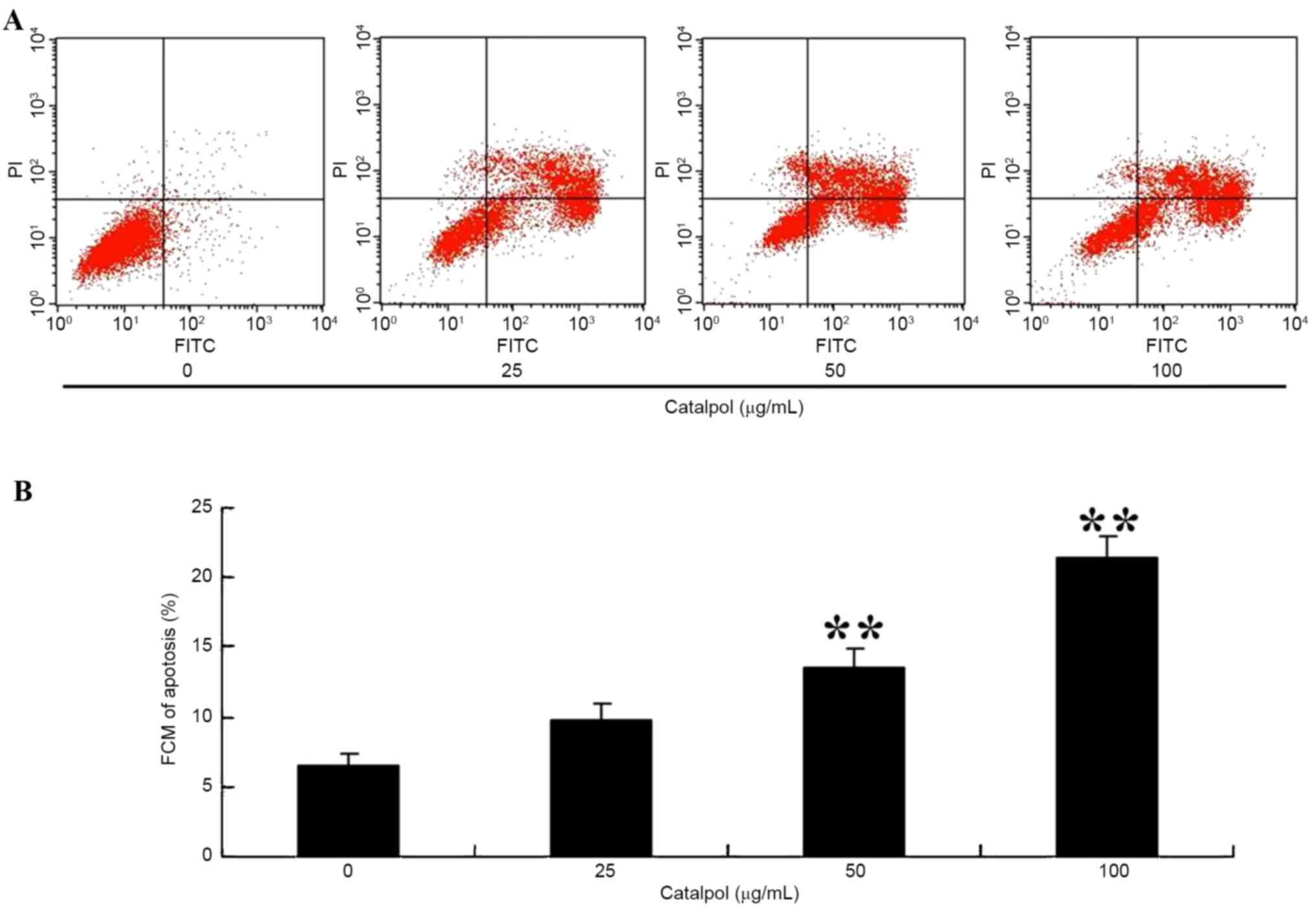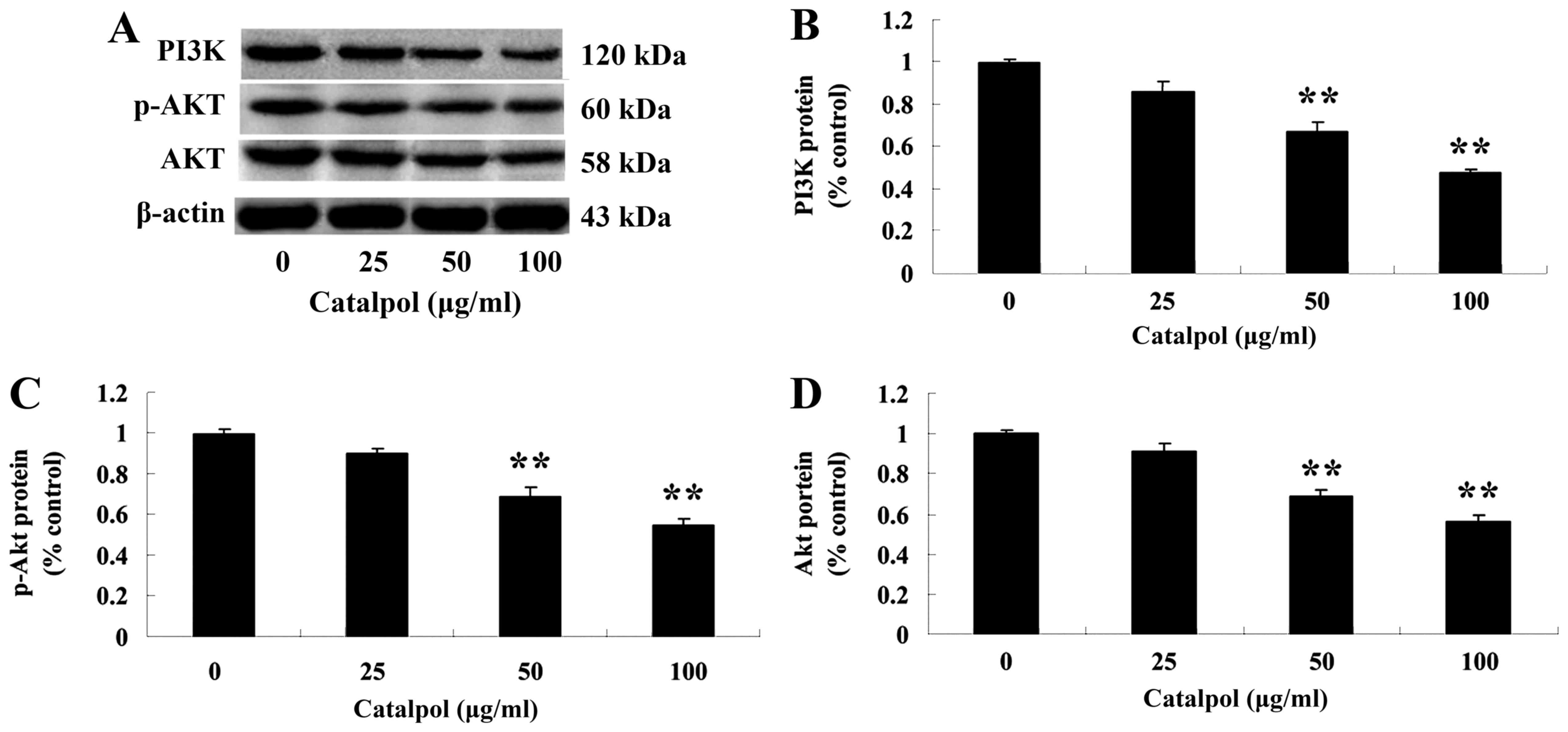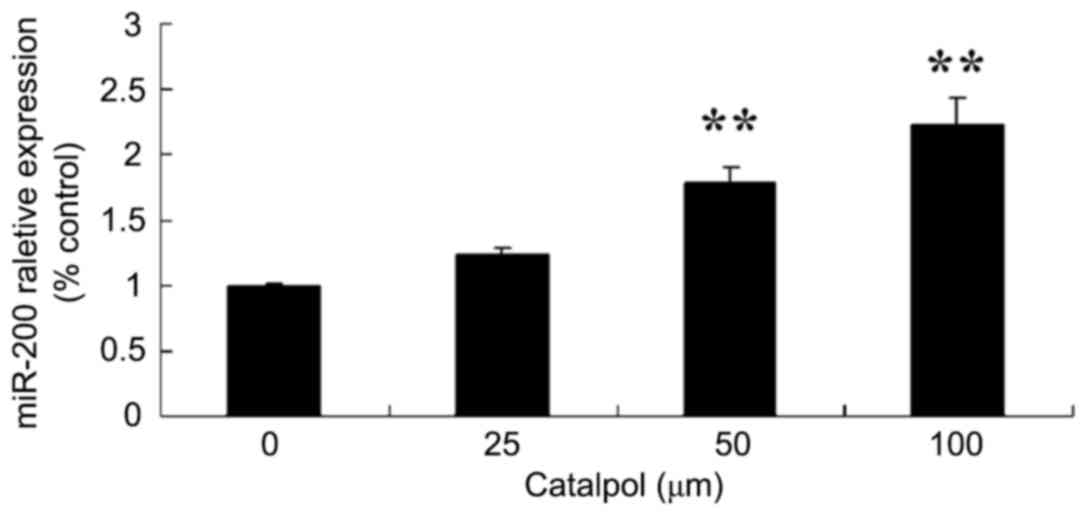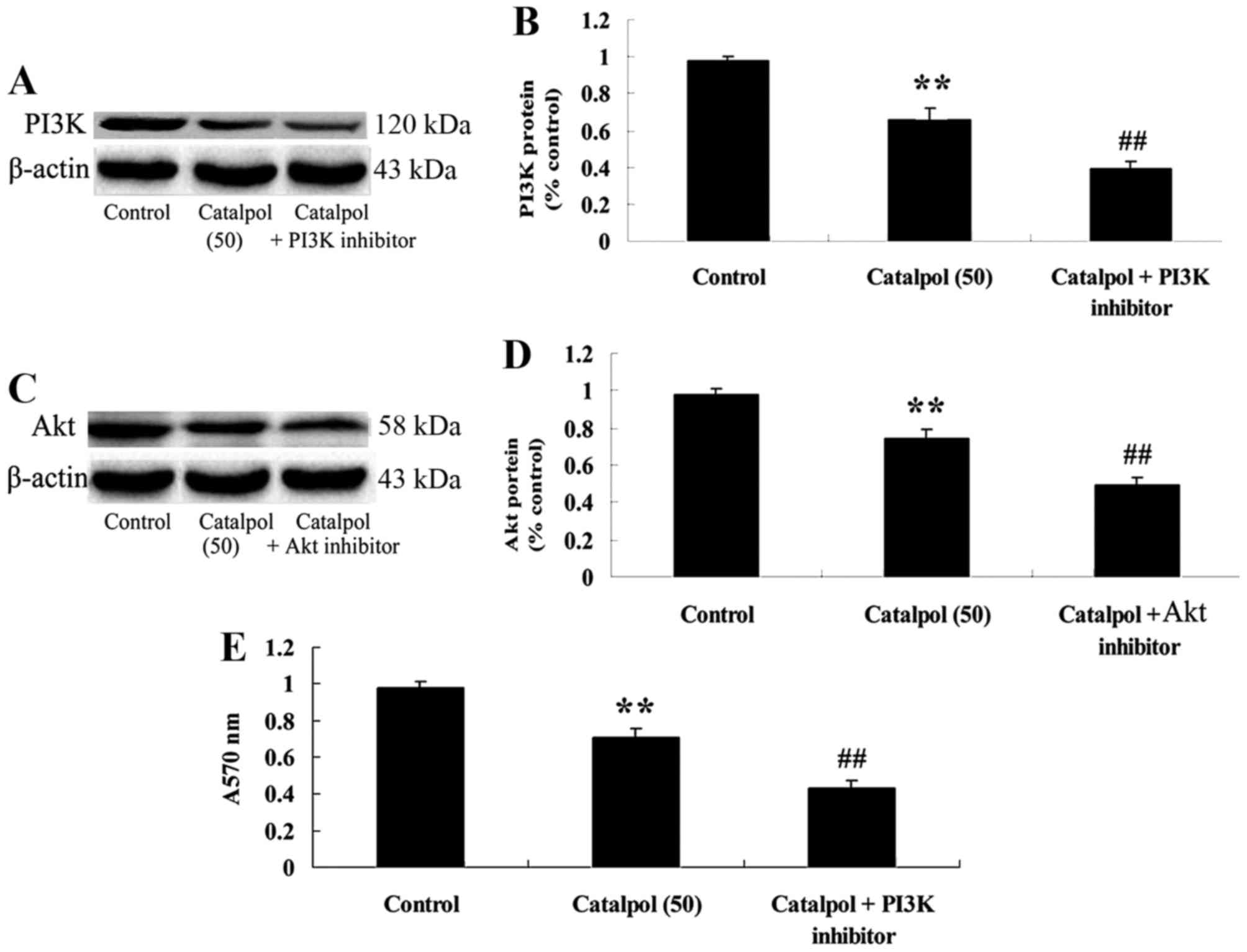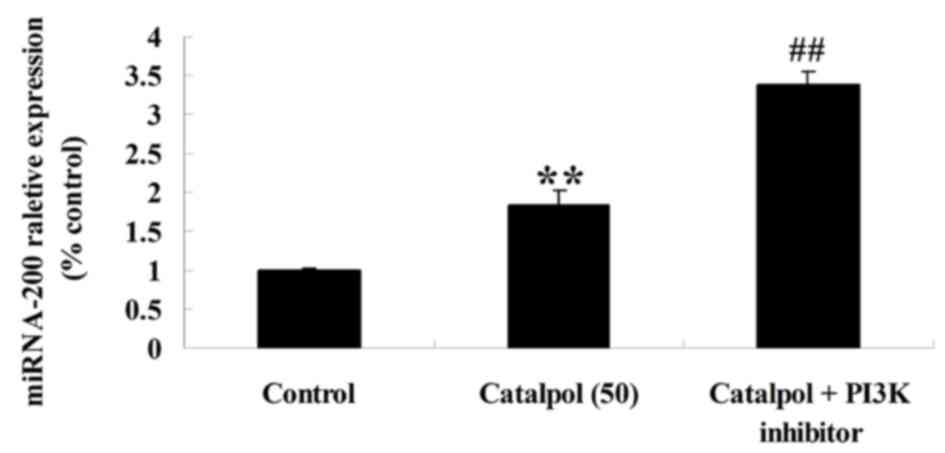|
1
|
Pandeló José D, Bartholomeeusen K, da
Cunha RD, Abreu CM, Glinski J, da Costa TB, Bacchi Rabay AF,
Pianowski Filho LF, Dudycz LW, Ranga U, et al: Reactivation of
latent HIV-1 by new semi-synthetic ingenol esters. Virology.
462–463:328–339. 2014. View Article : Google Scholar
|
|
2
|
Liu Y, Yin Z, Zhang R, Yan K, Chen L, Chen
F, Huang W, Lv B, Sun C and Jiang X: MSCs inhibit bone
marrow-derived DC maturation and function through the release of
TSG-6. Biochem Biophys Res Commun. 450:1409–1415. 2014. View Article : Google Scholar : PubMed/NCBI
|
|
3
|
Early Breast Cancer Trialists'
Collaborative Group (EBCTCG): Effects of chemotherapy and hormonal
therapy for early breast cancer on recurrence and 15-year survival:
An overview of the randomised trials. Lancet. 365:1687–1717. 2005.
View Article : Google Scholar
|
|
4
|
Tryndyak VP, Beland FA and Pogribny IP:
E-cadherin transcriptional down-regulation by epigenetic and
microRNA-200 family alterations is related to mesenchymal and
drug-resistant phenotypes in human breast cancer cells. Int J
Cancer. 126:2575–2583. 2010.PubMed/NCBI
|
|
5
|
Li X, Roslan S, Johnstone CN, Wright JA,
Bracken CP, Anderson M, Bert AG, Selth LA, Anderson RL, Goodall GJ,
et al: miR-200 can repress breast cancer metastasis through
ZEB1-independent but moesin-dependent pathways. Oncogene.
33:4077–4088. 2014. View Article : Google Scholar : PubMed/NCBI
|
|
6
|
Higgins MJ and Stearns V: Understanding
resistance to tamoxifen in hormone receptor-positive breast cancer.
Clin Chem. 55:1453–1455. 2009. View Article : Google Scholar : PubMed/NCBI
|
|
7
|
Jiang Y, Gong FL, Zhao GB and Li J:
Chrysin suppressed inflammatory responses and the inducible nitric
oxide synthase pathway after spinal cord injury in rats. Int J Mol
Sci. 15:12270–12279. 2014. View Article : Google Scholar : PubMed/NCBI
|
|
8
|
Maehr T, Vecino JL, Wadsworth S, Wang T
and Secombes CJ: Four CISH paralogues are present in rainbow trout
Oncorhynchus mykiss: Differential expression and modulation during
immune responses and development. Mol Immunol. 62:186–198. 2014.
View Article : Google Scholar : PubMed/NCBI
|
|
9
|
Zhao S, Zhou L, Niu G, Li Y, Zhao D and
Zeng H: Differential regulation of orphan nuclear receptor TR3
transcript variants by novel vascular growth factor signaling
pathways. FASEB J. 28:4524–4533. 2014. View Article : Google Scholar : PubMed/NCBI
|
|
10
|
Debroy A, Vogel SM, Soni D, Sundivakkam
PC, Malik AB and Tiruppathi C: Cooperative signaling via
transcription factors NF-κB and AP1/c-Fos mediates endothelial cell
STIM1 expression and hyperpermeability in response to endotoxin. J
Biol Chem. 289:24188–24201. 2014. View Article : Google Scholar : PubMed/NCBI
|
|
11
|
Yang Z, Sun D, Yan Z, Reynolds AB,
Christman JW, Minshall RD, Malik AB, Zhang Y and Hu G: Differential
role for p120-catenin in regulation of TLR4 signaling in
macrophages. J Immunol. 193:1931–1941. 2014. View Article : Google Scholar : PubMed/NCBI
|
|
12
|
Isayev O, Rausch V, Bauer N, Liu L, Fan P,
Zhang Y, Gladkich J, Nwaeburu CC, Mattern J, Mollenhauer M, et al:
Inhibition of glucose turnover by 3-bromopyruvate counteracts
pancreatic cancer stem cell features and sensitizes cells to
gemcitabine. Oncotarget. 5:5177–5189. 2014. View Article : Google Scholar : PubMed/NCBI
|
|
13
|
Sirachainan E, Jaruhathai S, Trachu N,
Panvichian R, Sirisinha T, Ativitavas T, Ratanatharathorn V,
Chamnanphon M and Sukasem C: CYP2D6 polymorphisms influence the
efficacy of adjuvant tamoxifen in Thai breast cancer patients.
Pharmgenomics Pers Med. 5:149–153. 2012.PubMed/NCBI
|
|
14
|
Cota GF, de Sousa MR, Fereguetti TO and
Rabello A: Efficacy of anti-leishmania therapy in visceral
leishmaniasis among HIV infected patients: A systematic review with
indirect comparison. PLoS Negl Trop Dis. 7:e21952013. View Article : Google Scholar : PubMed/NCBI
|
|
15
|
Higgins JP and Thompson SG: Quantifying
heterogeneity in a meta-analysis. Stat Med. 21:1539–1558. 2002.
View Article : Google Scholar : PubMed/NCBI
|
|
16
|
Lyu J, Yang H, Lang J and Tan X: Tumor
necrosis factor gene polymorphisms and endometriosis in Asians: A
systematic review and meta-analysis. Chin Med J (Engl).
127:1761–1767. 2014.PubMed/NCBI
|
|
17
|
Toyama T, Yamashita H, Sugiura H, Kondo N,
Iwase H and Fujii Y: No association between CYP2D6*10 genotype and
survival of node-negative Japanese breast cancer patients receiving
adjuvant tamoxifen treatment. Jpn J Clin Oncol. 39:651–656. 2009.
View Article : Google Scholar : PubMed/NCBI
|
|
18
|
Chamnanphon M, Pechatanan K, Sirachainan
E, Trachu N, Chantratita W, Pasomsub E, Noonpakdee W, Sensorn I and
Sukasem C: Association of CYP2D6 and CYP2C19 polymorphisms and
disease-free survival of Thai post-menopausal breast cancer
patients who received adjuvant tamoxifen. Pharmgenomics Pers Med.
6:37–48. 2013.PubMed/NCBI
|
|
19
|
Pu Z, Yuan X, Zhang X, Chen Q and Xie H:
Meta-analysis on the association between CYP2D6*10 gene
polymorphism and disease free survival of breast cancer patients
receiving tamoxifen treatment in Asia. Bangladesh J Pharmacol.
9:652–662. 2014. View Article : Google Scholar
|
|
20
|
Livak KJ and Schmittgen TD: Analysis of
relative gene expression data using real-time quantitative PCR and
the 2(−Delta Delta C(T)) method. Methods. 25:402–408. 2001.
View Article : Google Scholar : PubMed/NCBI
|
|
21
|
Lee K, Kim SJ, Kim D, Jo SH, Lee Joong S
and Choi SY: Prostaglandin modulates TLR3-induced cytokine
expression in human astroglioma cells. Brain Res. 1589:54–60. 2014.
View Article : Google Scholar : PubMed/NCBI
|
|
22
|
Chan SM, Chadwick J, Young DL, Holmes E
and Gotlib J: Intensive serial biomarker profiling for the
prediction of neutropenic Fever in patients with hematologic
malignancies undergoing chemotherapy: A pilot study. Hematol Rep.
6:54662014. View Article : Google Scholar : PubMed/NCBI
|
|
23
|
Lee S, Pant HC and Shea TB: Divergent and
convergent roles for kinases and phosphatases in neurofilament
dynamics. J Cell Sci. 127:4064–4077. 2014. View Article : Google Scholar : PubMed/NCBI
|
|
24
|
Armand-Labit V and Pradines A: Circulating
cell-free microRNAs as clinical cancer biomarkers. Biomol Concepts.
8:61–81. 2017. View Article : Google Scholar : PubMed/NCBI
|
|
25
|
Zheng Q, Chen C, Guan H, Kang W and Yu C:
Prognostic role of microRNAs in human gastrointestinal cancer: A
systematic review and meta-analysis. Oncotarget. Mar 29–2017.(Epub
ahead of print).
|
|
26
|
Tanaka S, Hosokawa M, Yonezawa T, Hayashi
W, Ueda K and Iwakawa S: Induction of epithelial-mesenchymal
transition and down-regulation of miR-200c and miR-141 in
oxaliplatin-resistant colorectal cancer cells. Biol Pharm Bull.
38:435–440. 2015. View Article : Google Scholar : PubMed/NCBI
|
|
27
|
Ning X, Shi Z, Liu X, Zhang A, Han L,
Jiang K, Kang C and Zhang Q: DNMT1 and EZH2 mediated methylation
silences the microRNA-200b/a/429 gene and promotes tumor
progression. Cancer Lett. 359:198–205. 2015. View Article : Google Scholar : PubMed/NCBI
|
|
28
|
Gao N, Tian JX, Shang YH, Zhao DY and Wu
T: Catalpol suppresses proliferation and facilitates apoptosis of
OVCAR-3 ovarian cancer cells through upregulating microRNA-200 and
downregulating MMP-2 expression. Int J Mol Sci. 15:19394–19405.
2014. View Article : Google Scholar : PubMed/NCBI
|
|
29
|
Luo JB, Feng L, Jiang WD, Liu Y, Wu P,
Jiang J, Kuang SY, Tang L, Zhang YA and Zhou XQ: The impaired
intestinal mucosal immune system by valine deficiency for young
grass carp (Ctenopharyngodon idella) is associated with decreasing
immune status and regulating tight junction proteins transcript
abundance in the intestine. Fish Shellfish Immunol. 40:197–207.
2014. View Article : Google Scholar : PubMed/NCBI
|
|
30
|
Jin Y, Desta Z, Stearns V, Ward B, Ho H,
Lee KH, Skaar T, Storniolo AM, Li L, Araba A, et al: CYP2D6
genotype, antidepressant use, and tamoxifen metabolism during
adjuvant breast cancer treatment. J Natl Cancer Inst. 97:30–39.
2005. View Article : Google Scholar : PubMed/NCBI
|
|
31
|
Sukasem C, Sirachainan E, Chamnanphon M,
Pechatanan K, Sirisinha T, Ativitavas T, Panvichian R,
Ratanatharathorn V, Trachu N and Chantratita W: Impact of CYP2D6
polymorphisms on tamoxifen responses of women with breast cancer: A
microarray-based study in Thailand. Asian Pac J Cancer Prev.
13:4549–4553. 2012. View Article : Google Scholar : PubMed/NCBI
|















